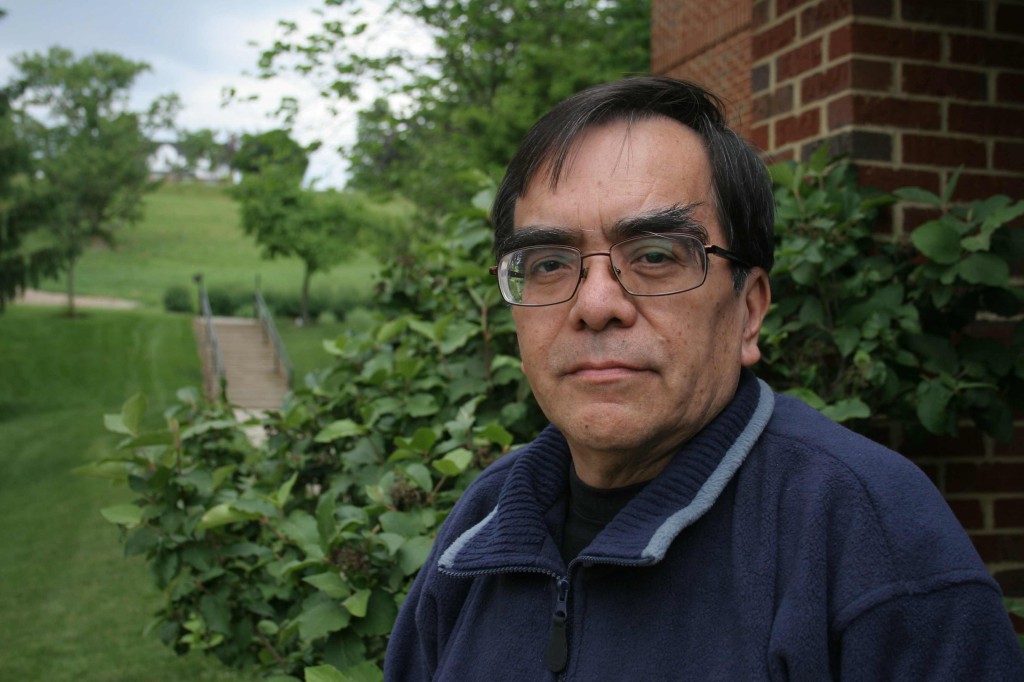“In order to survive we have to do a lot of things,” explains Carlos Martinez-Garcia, as he responds to a reporter’s question by listing the various hats he wears: human rights activist, Anabaptist pastor, sociologist, journalist, author of ten books.
Martinez-Garcia directs Mennonite theological education in Mexico, a program partly supported by Mennonite Central Committee (MCC). This program puts a strong emphasis not only on the Bible and theological issues, but on peacebuilding, justice, and reconciliation in local communities that have been shattered by the presence of drug cartels and violence.
“MCC sponsored me to SPI” – the 2013 Summer Peacebuilding Institute at Eastern Mennonite University – “because they believe I will take what I learn back home and use it to benefit Mexico as a whole, especially through my writings on justice and human rights,” explains Martinez-Garcia.
Martinez-Garcia is a regular columnist for a Mexican newspaper and for Protestante Digital, published in Spain. He primarily uses this column to lobby for religious tolerance and peace between Mexicans who incorporate traditional indigenous beliefs into their Catholicism and the orthodox Catholics who worship in much the same way that Catholics in European countries and the United States do.
The proudly indigenous group of Catholics feel that those who abandon traditional-indigenous beliefs and practices are betraying much of what makes Mexicans distinctive – that is, their deeply rooted customs and rich history. Therefore there is religious tension between the two groups of Catholics, and it is not unusual for disagreements to quickly turn violent, says Martinez-Garcia.
When he is not writing for the newspaper and Protestante Digital, Martinez-Garcia serves as the pastor of a small Anabaptist church of about 60-70 people. When he gets back to Mexico he wants share what he has learned at SPI with other pastors and even more widely, through organizing conferences and workshops.
Primarily he is worried about the violence in many of Mexico’s communities and wants to work with churches and other organizations with similar concerns to develop programs for reconciliation. “We have to be mature Christians,” he says. “We have to know the word of God and reality in order to grow in faith and in order to serve the needs of the people.”
